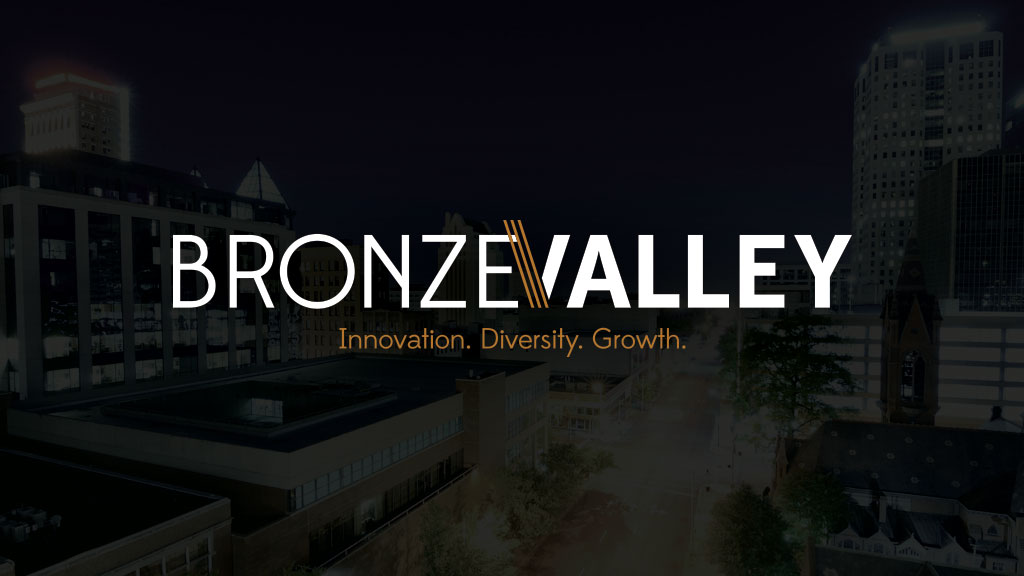Innovation. Diversity. Growth.
These are the cornerstones of the next generation of great American cities. Together, they are the engine that will propel civic success in the evolving economic and social landscape in which we live.
They provide a rallying point for communities looking to emerge from this era of change as places where potential — both economic and human — becomes reality.
Birmingham can be one of those cities.
The largest city in Alabama and the state’s financial center, Birmingham is situated at the hub of an emerging network of innovation, diversity and growth that spans the Southeast. Building on existing assets while also nurturing new ones, Birmingham is positioned to anchor the development of an ecosystem in which technology-based businesses thrive — and where economic opportunity and cultural progress are expanded and accelerated as part of a strategic, comprehensive, collaborative approach to the future.
Generating transformative, sustainable growth. Expanding the breadth and depth of economic opportunity in Birmingham, throughout Alabama and across the Southeast.
That is the dual mission of Bronze Valley.
A new organization established late in 2017, Bronze Valley is working to create an education-to opportunity-to outcome pipeline for communities that are underrepresented in technology careers, as entrepreneurs and in other fields where innovators will lead the way in creating the jobs of the future.
“We will be a catalyst for change,” declares Bronze Valley executive director Neill Wright.
A veteran of 25 years in banking and finance, Wright says that while Birmingham and Alabama have progressed economically and otherwise, “We can do better.” Attracting capital to support minority- and women-owned startups — and providing active mentorship for entrepreneurs — is only part of the picture, he adds. Bronze Valley will bring “innovation, ideas and concentrated thought” to technology-based business development in general, becoming “a force for improving lives in the community as a whole.”
“There is a need,” says Wright. “And there is an opportunity to meet that need. As business leaders, we have an obligation to enhance and improve our ecosystem for growth. We can fulfill that obligation by creating an entrepreneurial environment that is more nurturing, more supportive and more inclusive. Bronze Valley is the perfect vehicle for that.”
Bronze Valley will launch officially on Feb. 14 with an inaugural conference in Birmingham. This invitation-only Bronze Valley conference will bring together top corporate executives, elected officials, entrepreneurs, venture capitalists, policymakers and thought leaders from across the country to consider long-term solutions for the barriers to diversity that have prevailed in America’s top tech growth centers — including the well-publicized diversity struggles of Silicon Valley.
Incorporating the commitment to diversity into its economic development strategy is part of what the founders and supporters of Bronze Valley view as a comprehensive approach to building a robust startup culture. The success of that approach will be determined by the level of collaboration Bronze Valley can generate — and sustain — between business, government, primary and secondary education, colleges and universities, nonprofits and community organizations.
The success of Bronze Valley will be tracked in real terms: jobs created; companies started, attracted and expanded; improved educational attainment; and growth in minority and female employment in technology fields. But the ultimate indicator of success will be a shift in the way communities think about themselves and their economic prospects, and in how they go about securing a more prosperous future.
“It’s about creating and perpetuating a culture of innovation,” says John O. Hudson III, a member of the Bronze Valley board of directors. Hudson is also the senior vice president of Marketing and Business Development for Alabama Power Co., a corporate sponsor of Bronze Valley.
“Not just in Birmingham and Alabama, but throughout the Southeast, we have the momentum and we have the ingredients. With Bronze Valley, we’re putting the collaborative infrastructure in place to support transformational growth and progress,” Hudson said.
Hudson points to disparities in the availability of funding and other resources available to people of color. For instance, he notes, African-American women are the fastest-growing group of entrepreneurs in America, and yet little more than one-half of one percent (0.58%) currently obtain startup funding for their businesses or ideas. Hudson says the “culture of innovation” envisioned by Bronze Valley includes turning such disparities into opportunities and positive outcomes.
Cities, states and regions that can create that kind of culture — and the individual and collective opportunities it produces — will be well-positioned to take advantage of the changes shaping the economy of the 21st century. But time is of the essence.
“We have to act now,” says Hudson. “This is a critical moment for us if we’re going to take full advantage of what can be accomplished through Bronze Valley. The time is ripe for this idea and the role it can play in creating opportunity, realizing potential and nurturing places where economic development and cultural progress go hand-in-hand to strengthen entire communities.
“That’s what Bronze Valley is about, and those are the things we’re going to accomplish.”


